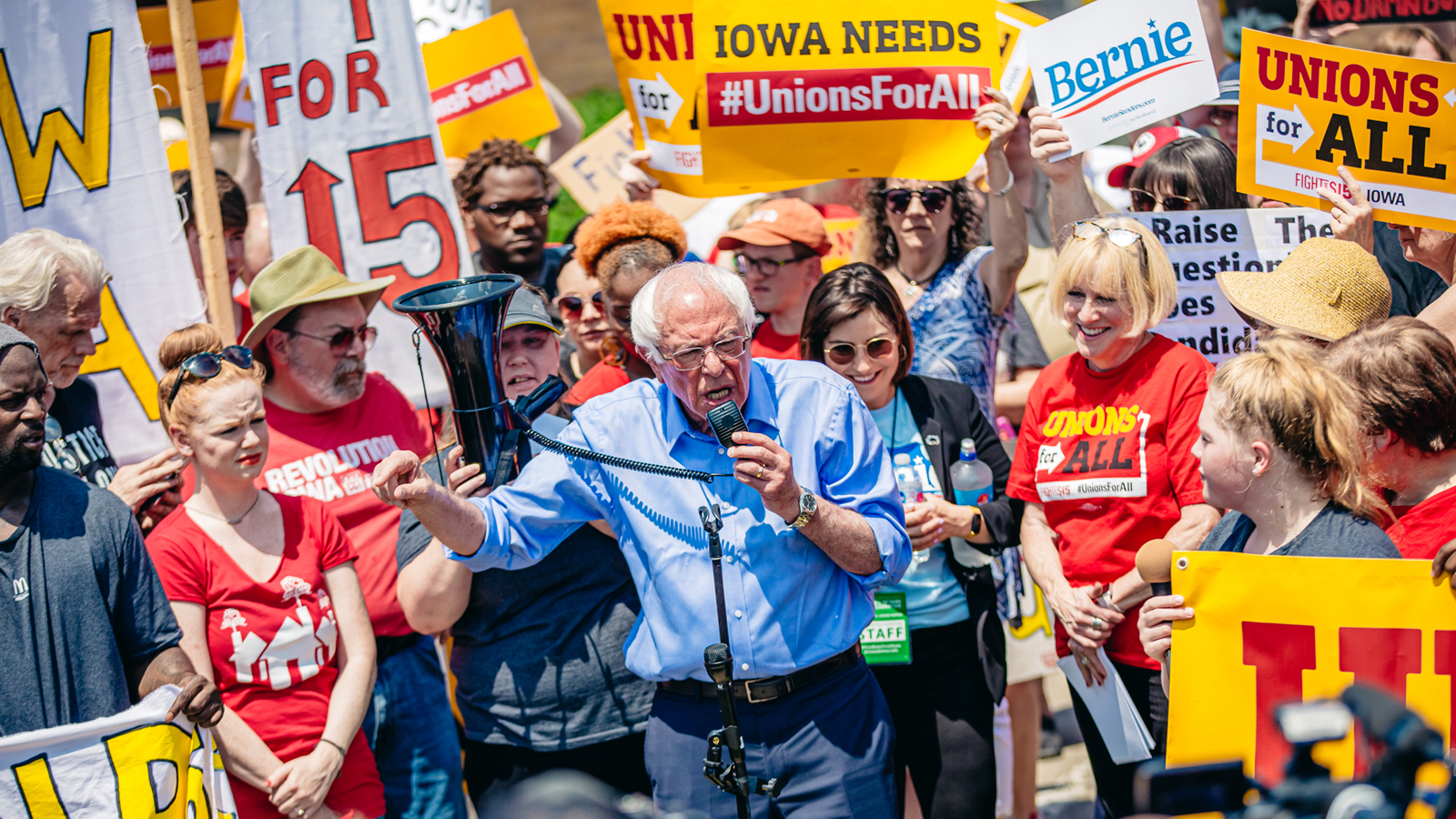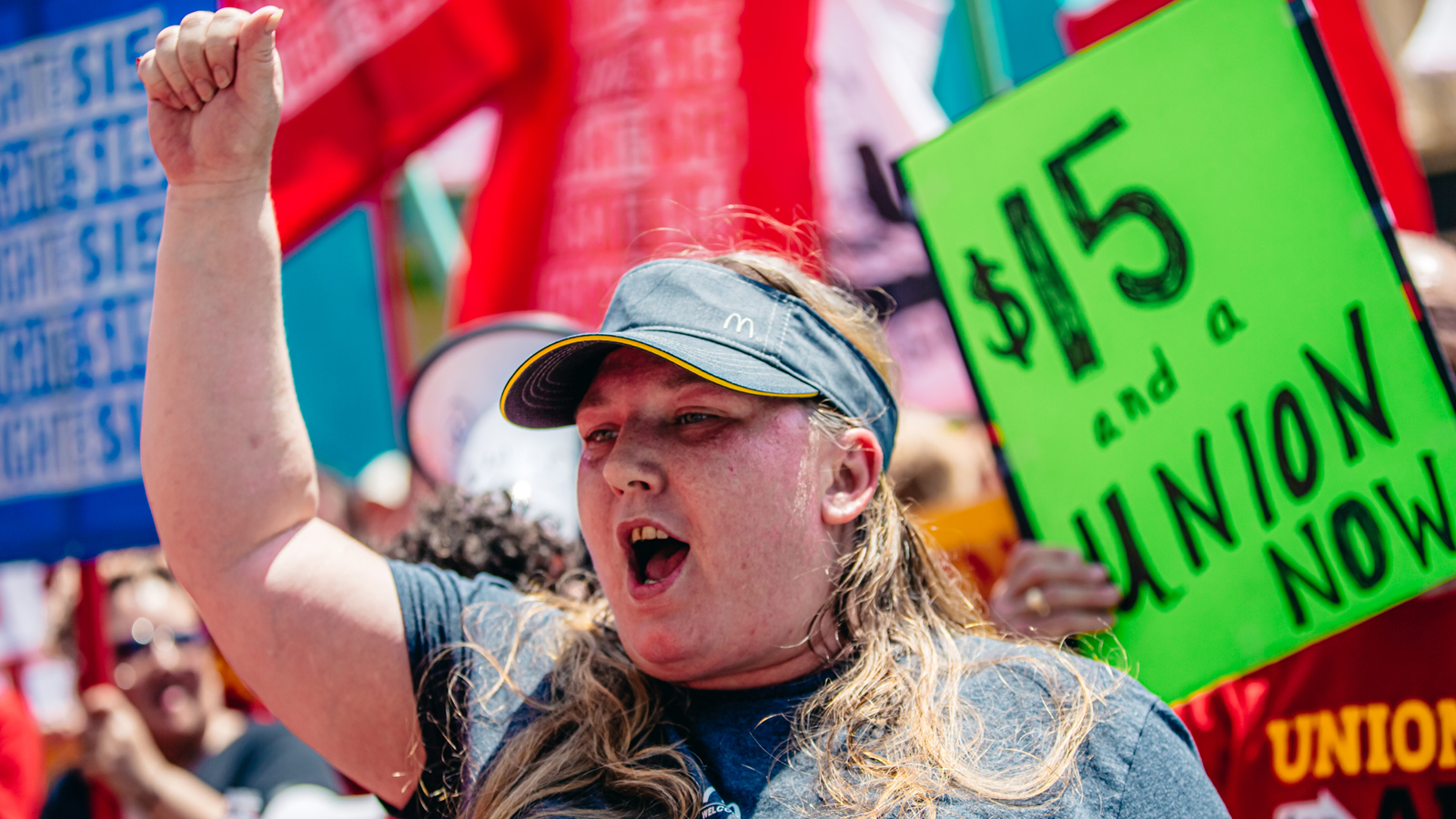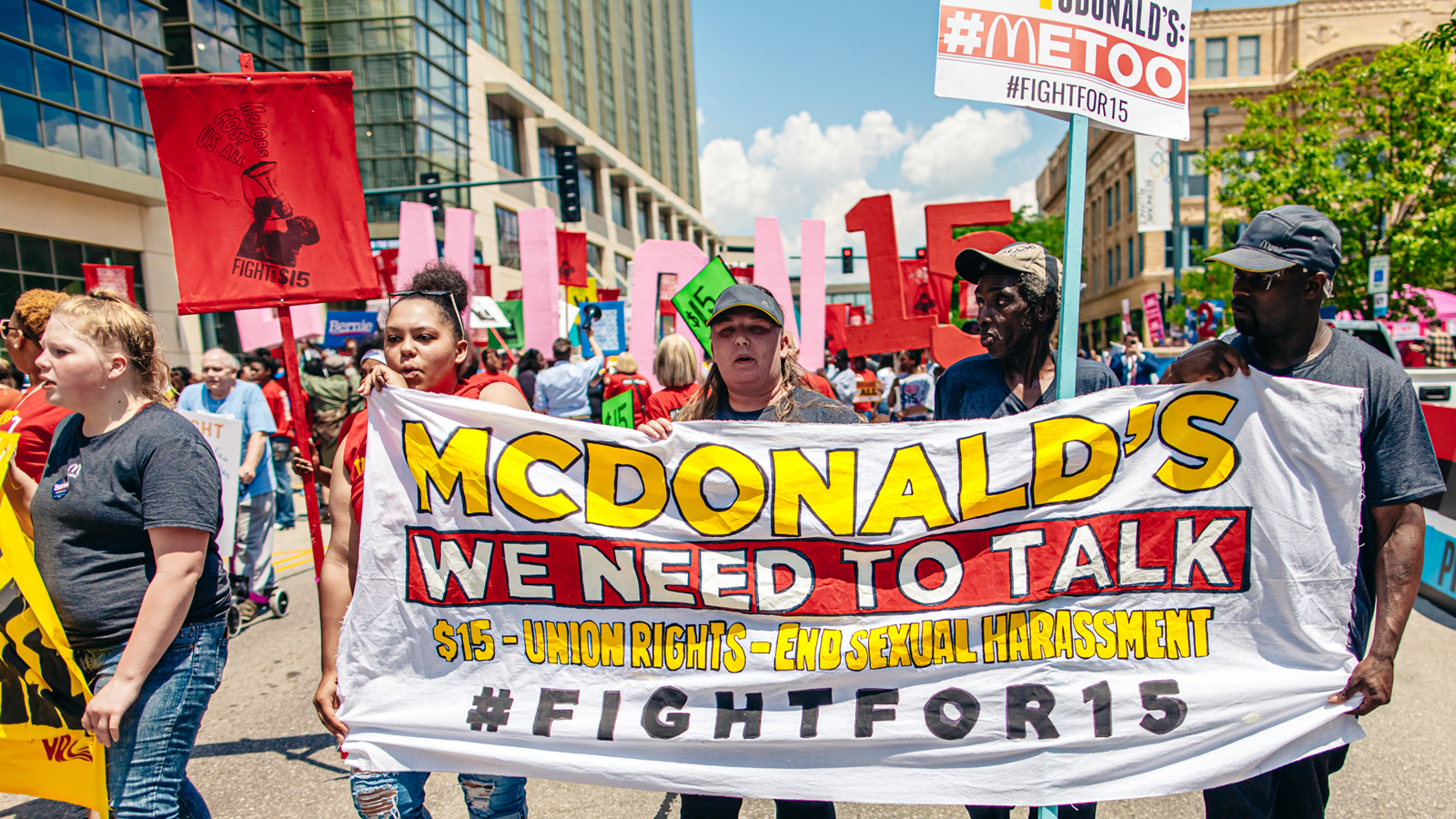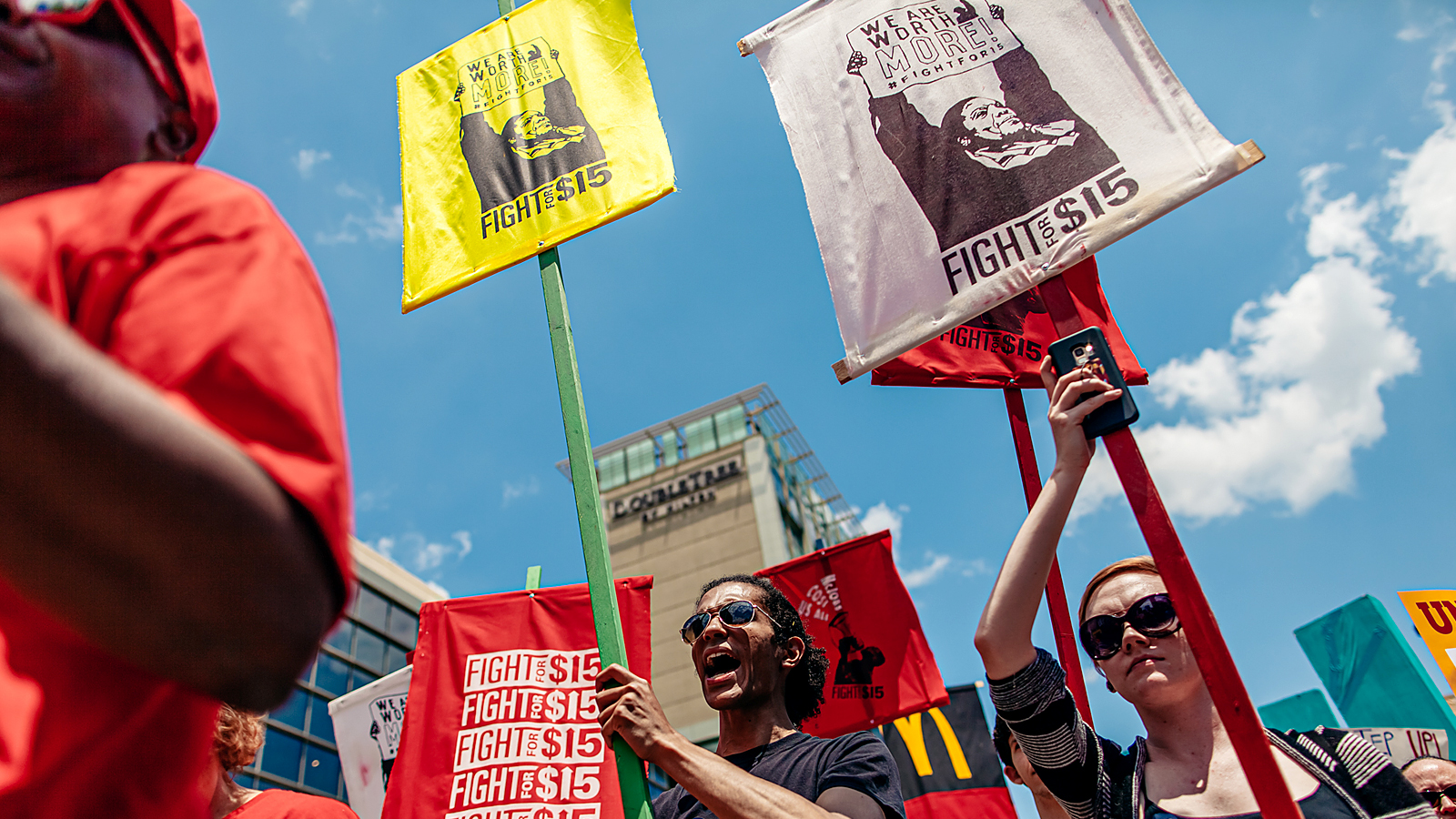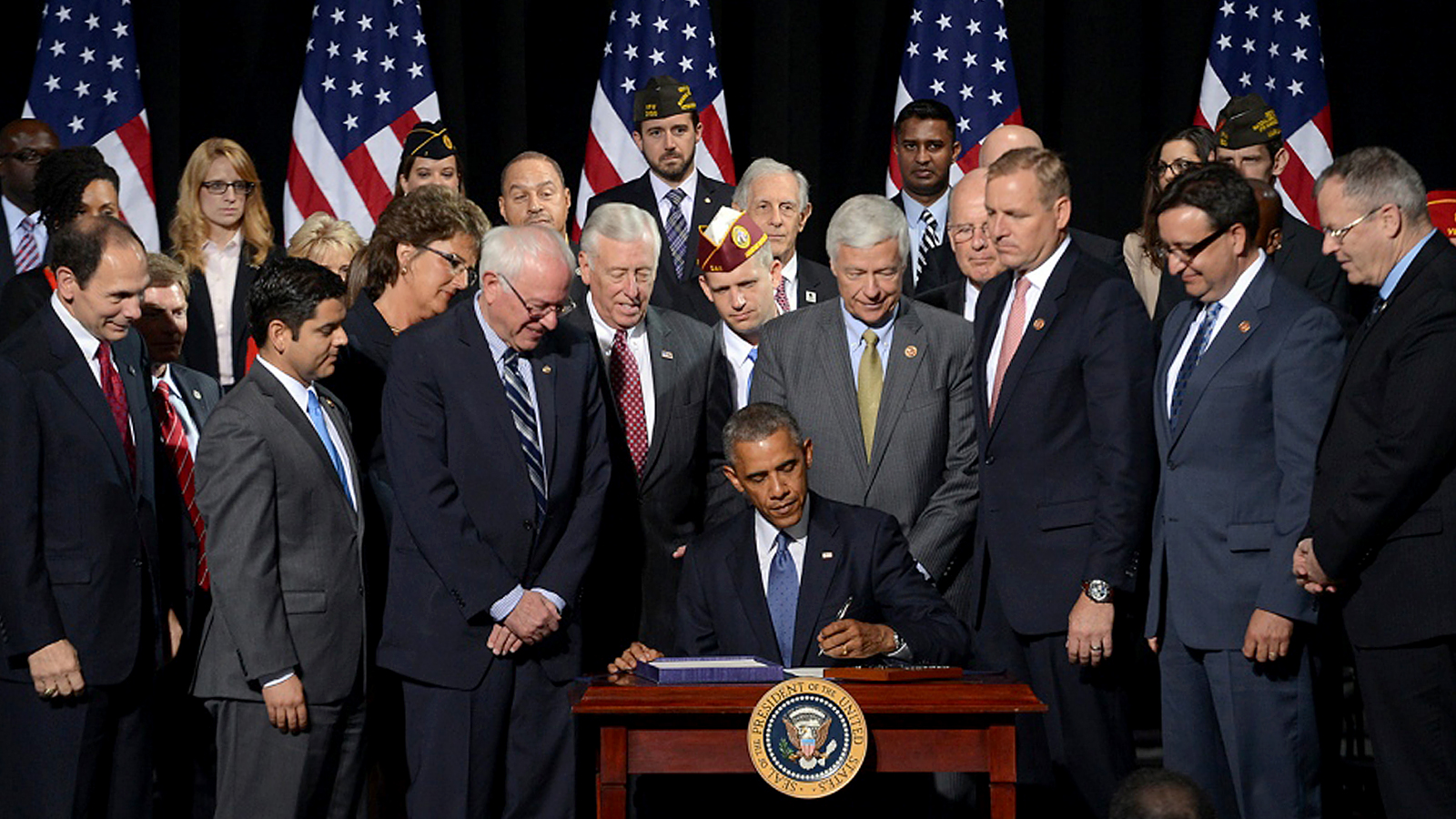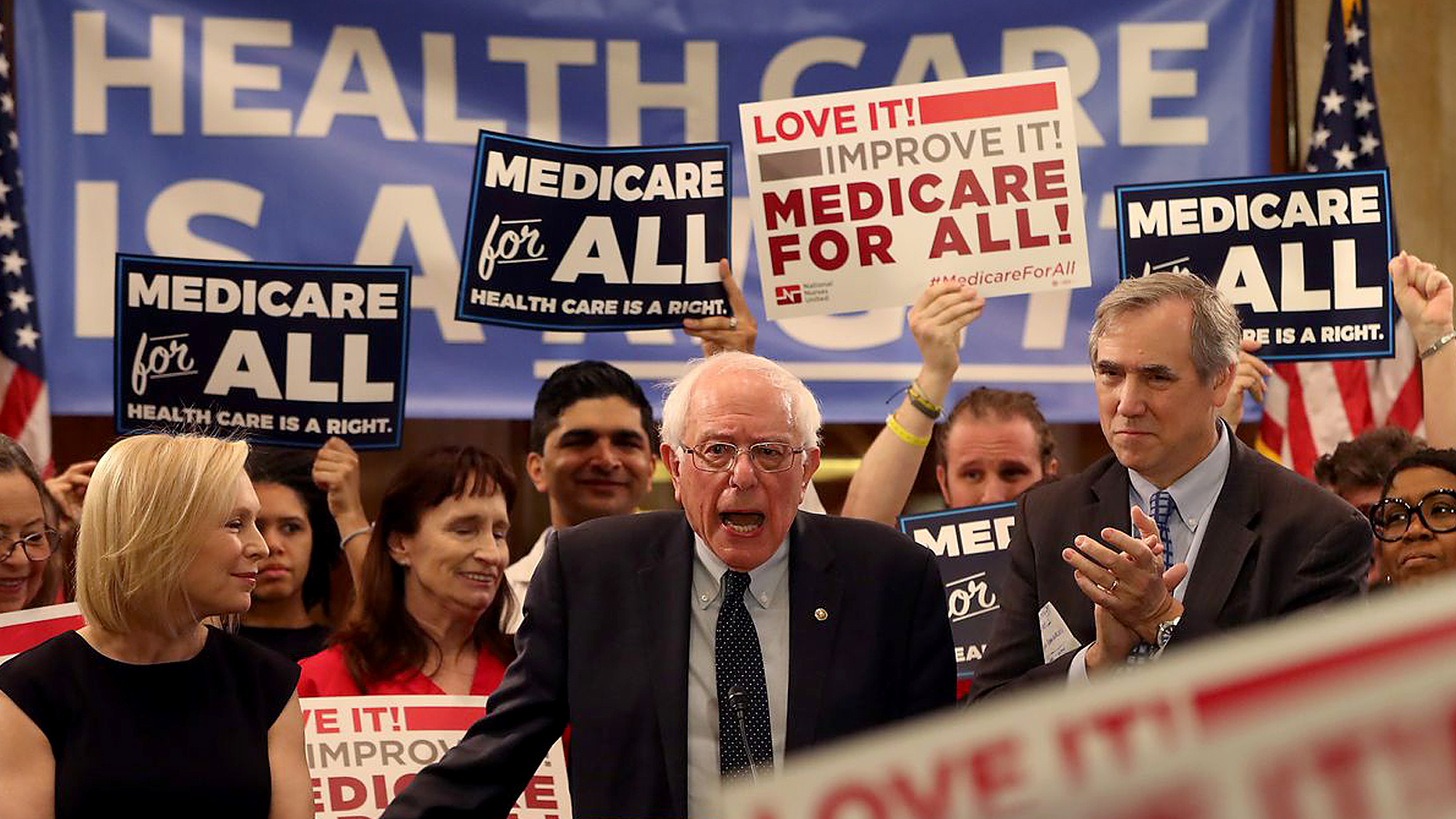On May 25, 2017, Senator Bernie Sanders, Senator Patty Murray, and Senator Chuck Schumer introduced the Raise the Wage Act to provide for increases to the Federal Minimum Wage. The bill called for raising the national minimum wage, in annual increments, to $15 an hour by 2024.[1]
The U.S. federal $7.25 per hour minimum wage is regarded as a starvation wage and has not seen an increase since 2009. The movement to raise the wage began in 2012 when striking fast food workers launched the Fight for $15 campaign, moving several states to raise their minimum wage to $15 per hour.
“The (Fight for $15) movement’s success is inspirational,” said Yannet Lathrop, a National Employment Law Project policy analyst. “It has helped 26 million workers across the U.S. win $150bn per year in additional pay. Its impact on workers of color is significant. About 12 million workers of color have benefited, and their additional earnings are $76bn a year.” For workers whose wages rose, this means an average raise of roughly $6,000 a year.[2]
At a 2015 outdoor rally near the Capitol, Sanders said, “It is a national disgrace that millions of full-time workers are living in poverty and millions more are forced to work two or three jobs to pay their bills…a job must lift workers out of poverty, not keep them in it. The current federal minimum wage of $7.25 an hour is a starvation wage and must be raised to a living wage.”[3]
Despite Senator Sanders’ ongoing efforts to raise the minimum wage, as of this writing in December 2022, the Federal minimum wage remains at $7.25, and another recession is predicted to hit the U.S. in 2023.
In a January 2021 interview, Sanders said, “If we cannot get enough Republicans to vote for this legislation under regular order, we cannot simply take no for an answer. We must raise the minimum wage to $15 an hour, either through budget reconciliation, by a simple majority vote in the Senate. And as the incoming chair of the Senate budget committee, that is exactly what I will be fighting to do.”[4]
“Asked how a raise to the minimum wage would qualify under the reconciliation rules, a question that has been a point of outside contention, Sanders and others pointed to the law’s potential knock-on effects. Specifically, he argued that many workers currently depending on some forms of federal assistance would no longer need it, which would reduce government spending and “have a very positive impact on the federal deficit.”[4]
“The economic impact of a higher wage has been hotly debated among economists for years, with left-leaning experts countering that increasing salaries will allow workers to spend more and lift businesses and the economy. Since 1968, the minimum wage has lost more than 30% of its purchasing power, according to a fact sheet distributed by lawmakers.”[4]
 Back to Timeline
Back to Timeline
